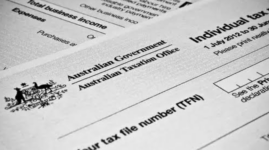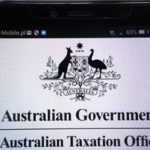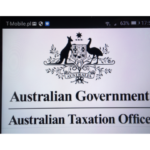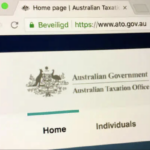The Commonwealth Offence of Dishonestly Obtaining a Financial Advantage by Deception

A member of a motorcycle club in Sydney has been charged with a string of Commonwealth criminal offences in relation to a social media scam that has allegedly cost the Australian taxpayers $1.6 billion.
According to investigators, the fraud came to light in 2020 and after mandatory reporting by major banks.
The banks are said to have frozen the suspect accounts and alerted the Australian Taxation Office (ATO).
The alleged fraud
The alleged fraud involves tens of thousands of people submitting GST refund claims to the ATO for fake businesses, and cashing in on those claims after they are processed, approved and refunded.
False GST claims
The enterprise is alleged to be facilitated by applying for an Australian Business Number (ABN) for a fake business and registering the business for GST.
Those involved then submit Business Activity Statements in which they claim to have spent large sums of money on equipment and supplies, claiming back the 10% supposedly paid as GST for their purchase.
The ATO paid back a large number of these GST claims, expecting it would be able to recoup the cash from the GST turnover on the business making the claim.
ATO acted too slowly
The ATO has been criticised for acting ‘too slowly’ to shut down the scheme, but it contends its current actions have prevented the loss of a further $2.7 billion.
The Australian Federal Police has been conducting investigations into the scheme, reporting that more than 100 people have been arrested and 10 people convicted over the scheme.
Motorcycle club member accused of being ‘heavily involved’
In recent days, the AFP has accused Hells Angels motorcycle club member Mustafa Hafizi of being heavily involved in the scheme.
Mr Hamzi has now been arrested and charged with six counts of obtaining a financial advantage by deception, one count of attempting to obtain a financial advantage by deception, one count of conspiracy to defraud the Commonwealth and one of dealing with proceeds of money or property worth $1000.
Police say that several other Hells Angels Motorcycle Club members have also been arrested and charged with similar offences.
Viral on social media
The scheme went viral on social media platforms such as TikTok and Facebook – and there are also concerns that ordinary everyday Aussies could be caught up in it, unknowingly.
Since the pandemic people have been doing it tough. Everyday living costs have increased exponentially, along with escalating interest rates – both have made many people look outside their day jobs to start a side hustle, or find other ways to make money easily and quickly.
Financial experts have been warning for a long time that Fininfluencers’ (financial influencers) are not always to be trusted, despite how slick their videos and posts may appear.
Many of us use social media as a source of news and entertainment and information. Younger adults and teenagers in particular have a high reliance on social media – but we all need to have the discernment to work out for ourselves what’s genuine or could be fake.
Perhaps the ‘biggest tax fraud in history’
Of course, there are a range of laws to protect consumers – including newly drafted “misinformation laws”, which while designed to crack down on published “disinformation and deception” could also impact, even criminalise, freedom of speech.
Social media platforms also have responsibilities under Australia’s strict cyber safety laws. In this case Tik Tok – the social media platform where the scam is believed to have originated, cooperated fully with the ATO. It immediately shut down and permanently banned 60 accounts and also removed hundreds of videos promoting the fraud.
In 2021, the Australian Investment and Securities Commission (ASIC) has also been cracking down on ‘influencers’ and ‘finfluencers’ (financial influencers) in relation to the content they post on social media, to ensure they are fully compliant with the Australian Financial Services Licence requirements under the Corporations Act 2001 (Cth) (Act).
Potentially the largest tax fraud in Australia’s history
It is believed the ‘fake GST refund’ scheme could be the biggest tax fraud in Australian history when investigations are complete and the tally is added up.
Police claim that more than 56,000 people could be directly or indirectly involved, whether knowingly, recklessly or unwittingly.
An excuse to further remove privacy
The scheme has also prompted discussion about a potential review of privacy laws, and there are concerns it could be used as an excuse to further remove already lax privacy protections in Australia.
According to the AFP and ATO, their investigative efforts have been hampered by restrictions on their ability to share information between government agencies and departments.
But this argument is nonsense to many in the know, as the current state of the law regarding the sharing of information is more than sufficient to detect these types of schemes.
Ignorance is no defence
It is important to bear in mind that falling ‘prey’ to incorrect advice is not a legal defence – a person may be found guilty of fraud if they acted intentionally or recklessly in their conduct.
Typically, the old adage remains: “if it sounds too good to be true, then it probably is.’ The best course of action is to get a second opinion or two, or conduct your own research with ASIC to determine if the provider of the advice is actually legitimate, licensed and registered.
Ultimately these types of scams usually end up punishing more than those people who were directly involved, caught by police and punished by the courts. Ultimately tax revenue is used to fund public services and amenities – and when there are shortfalls, typically taxes rise, or governments find other ways to meet the revenue targets they need, by cutting back spending in other areas.
The charges against Mustafa Hafizi – obtain financial advantage by deception, attempting to obtain a financial advantage by deception, conspiracy to defraud the Commonwealth and dealing with proceeds of money or property worth $1000 are all very serious charges, with significant jail sentences.
The Commonwealth offence of dishonestly obtaining a financial advantage by deception
Obtaining a financial advantage by deception is an offence under section 134.2 of the Criminal Code Act 1995 which carries a maximum penalty of 10 years in prison.
To establish the offence, the prosecution must prove beyond reasonable doubt that:
- You dishonestly obtained a financial advantage from another,
- You did so by a deception, and
- The other was a Commonwealth entity.
The Australian Taxation Office is a Commonwealth entity for the purposes of the section.
What is the meaning of dishonest?
Dishonesty is determined according to the standards of ordinary people in the community, and known by you to be dishonest.
An act can be ‘dishonest’ even if you intended to repay the money.
What is a deception?
‘Deception’ means an intentional or reckless deception, whether by words or conduct, and whether as to fact or law, and includes:
- A deception as to your intentions or that of another person, and
- Conduct that causes a computer, machine or electronic device to make a response you are not authorised to cause of a deception or act of dishonesty.
The Commonwealth offence of conspiracy to defraud – obtaining a gain
Conspiracy to defraud – obtaining a gain is an offence under section 135.4(1) of the Criminal Code Act 1995 (Cth) which carries a maximum penalty of 10 years in prison.
To establish the offence, the prosecution must prove beyond reasonable doubt that:
- You conspired with another person with the intention to obtain a gain,
- You did so dishonestly, and
- The gain was from a Commonwealth entity.
The prosecution does not need to prove that you knew the gain was from a Commonwealth entity or that the proposed act was possible to commit.
However, it does need to prove that:
- You entered into an agreement with at least one person,
- You intended to carry out an act under that agreement, and
- You committed an overt act under that agreement.
Legal defences
It is important to be aware that where you are able to raise evidence of a legal defence to any fraud-related charge, the onus shifts to the prosecution who are required to disprove beyond a reasonable doubt that the defence applies.
You are entitled to an acquittal (a not guilty verdict) if the prosecution is unable to do this.
Legal defences to fraud charges include duress and necessity.







